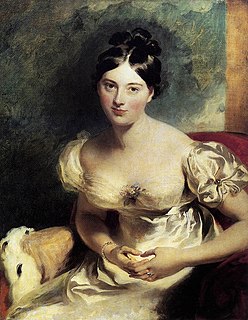A Quote by Marguerite Gardiner, Countess of Blessington
Memory seldom fails when its office is to show us the tombs of our buried hopes.
Related Quotes
Memory is slippery. It bends to our understanding of the world, twists to accommodate our prejudices. It is unreliable. Witnesses seldom remember the same things. They identify the wrong people. They give us the details of events that never happened. Memory is slippery, but my memories suddenly feel slipperier.
Memory is a dead thing. Memory is not truth and cannot ever be, because truth is always alive, truth is life; memory is persistence of that which is no more. It is living in ghost world, but it contains us, it is our prison. In fact it is us. Memory creates the knot, the complex called the I and the ego
Most of our difficulties, our hopes, and our worries are empty fantasies. Nothing has ever existed except this moment. That's all there is. That's all we are. Yet most human beings spend 50 to 90 percent or more of their time in their imagination, living in fantasy. We think about what has happened to us, what might have happened, how we feel about it, how we should be different, how others should be different, how it's all a shame, and on and on; it's all fantasy, all imagination. Memory is imagination. Every memory that we stick to devastates our life.
But pain may be a gift to us. Remember, after all, that pain is one of the ways we register in memory the things that vanish, that are taken away. We fix them in our minds forever by yearning, by pain, by crying out. Pain, the pain that seems unbearable at the time, is memory's first imprinting step, the cornerstone of the temple we erect inside us in memory of the dead. Pain is part of memory, and memory is a God-given gift.
Susan Wojcicki at Google makes a point to leave the office at 6 P.M. After 9 P.M. she gets back online to handle any pressing work issues that need her attention. She told us she hopes that sends a message to all parents that it's OK to spend time away from the office. All the women we spoke to on the show use technology in a similar way. They are very clear that they don't need to be chained to a desk. They can take time out of their work day to be with their families.
When women hear those words, an old, old memory is stirred and brought back to life. The memory is of our absolute, undeniable, and irrevocable kinship with the wild feminine, a relationship which may have become ghostly from neglect, buried by over-domestication, outlawed by the surrounding culture, or no longer understood anymore. We may have forgotten her names, we may not answer when she calls ours, but in our bones we know her, we yearn toward her, we know she belongs to us and we to her.






































